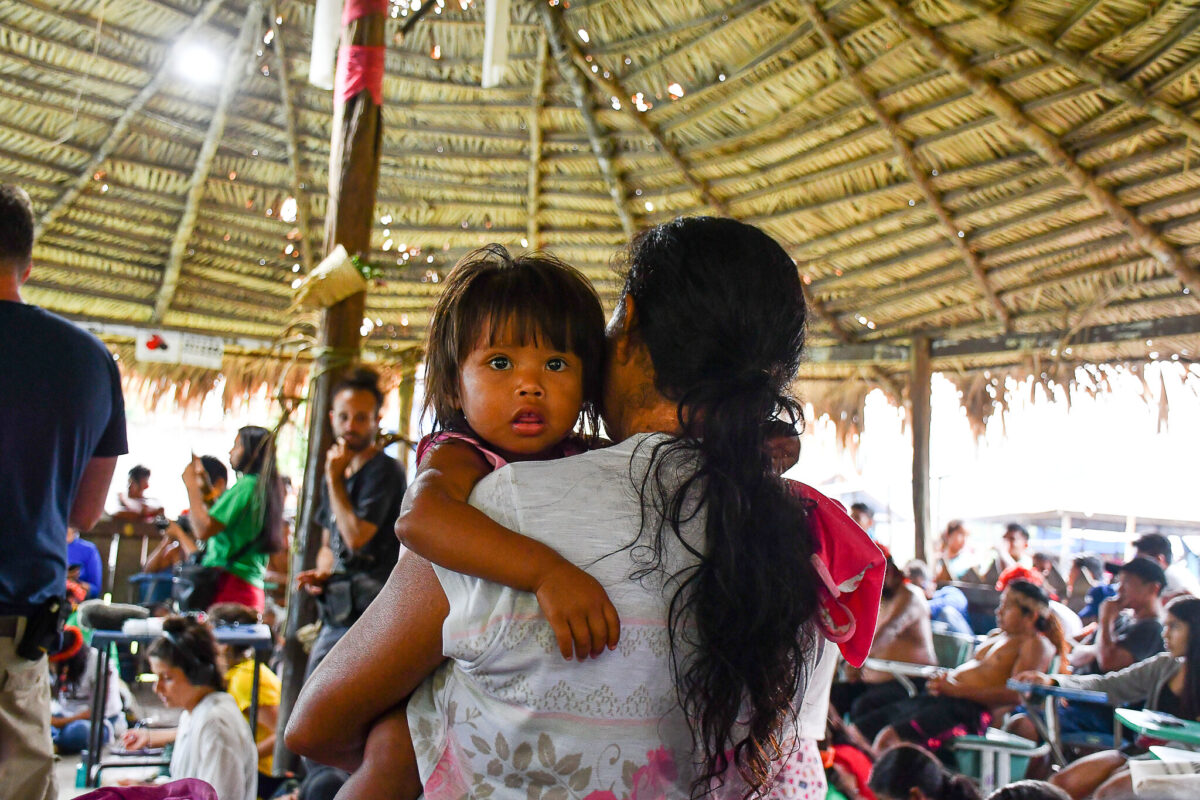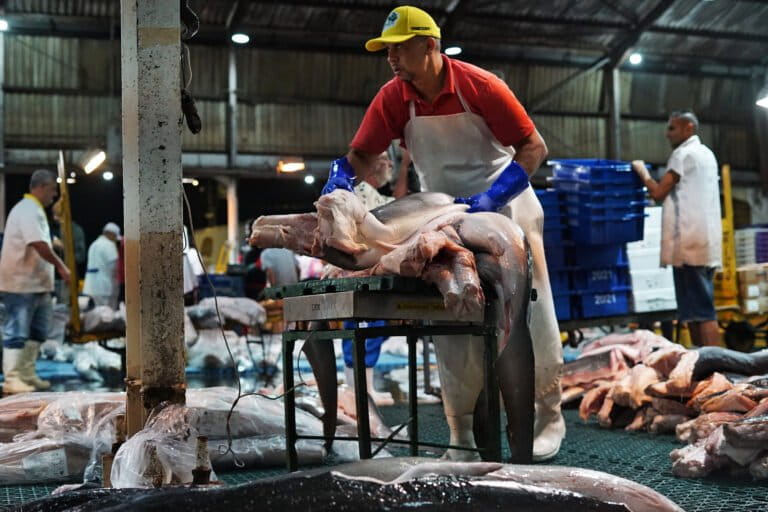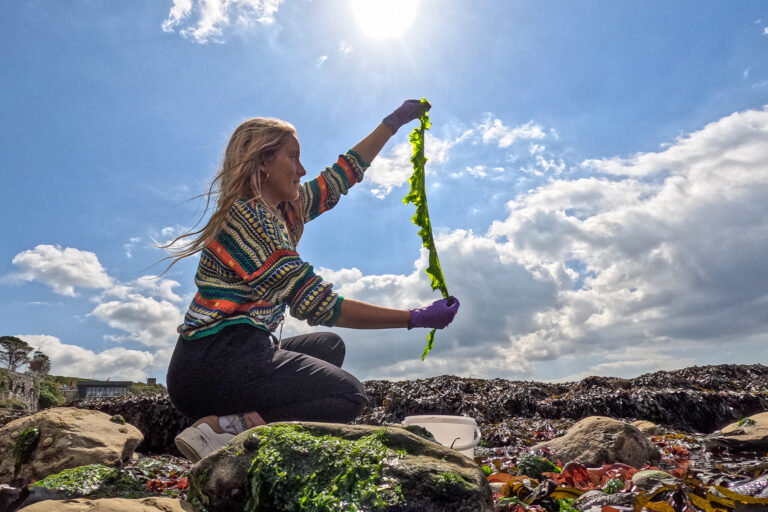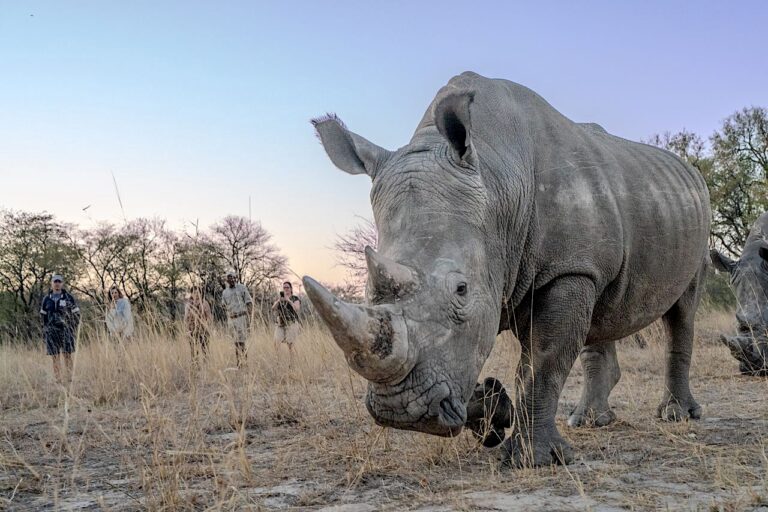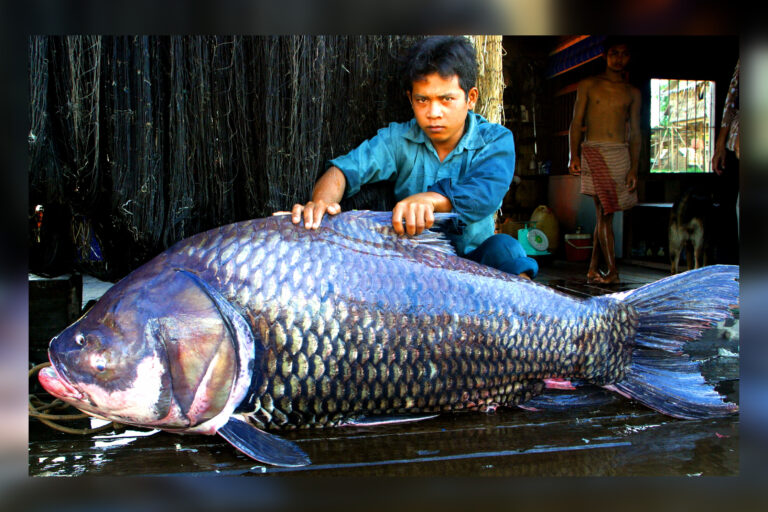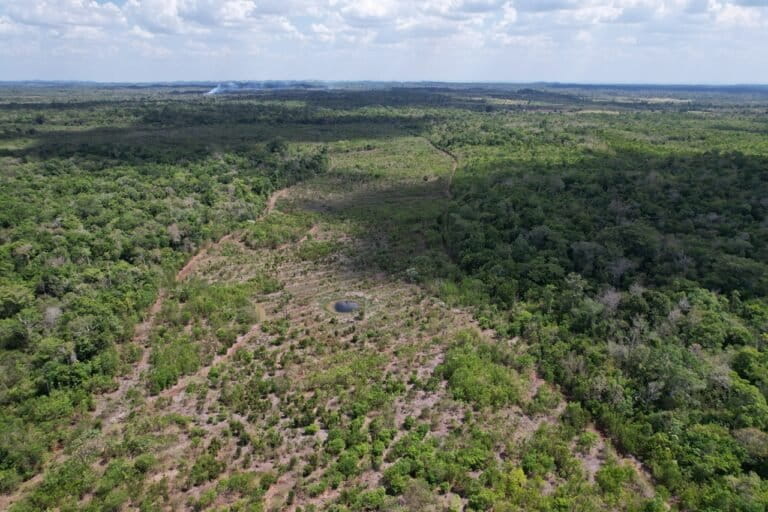The International Fund for Animal Welfare (IFAW) has recently returned from Bouba Ndjida National Park in northern Cameroon, where at least 400 elephants have been slaughtered since mid-January. IFAW is the only international organization that has assessed the situation within the park.
According to the organization, the violence against the elephants was extreme. It appeared that many of the elephants had been chased before being gunned down by poachers. Once on the ground, the animals’ trunks were cut off, and then the tusks were removed with a machete. A veterinarian traveling with the team said that the elephants were most likely still alive while the tusks were being culled. The survey also found that the massacre was indiscriminate: some elephants were only a few months old.
Celine Sissler-Bienvenu, Director of IFAW France, and part of the field team, believed the poachers were very methodical: “In some groups, the state of decomposition was different, suggesting that poachers waited until surviving elephants came back to ‘mourn’ their dead before shooting them as well.”
The heavily armed poachers, who entered the park via Chad, travel on horseback, and have been identified as predominantly Sudanese. IFAW says this was reinforced by the fact that some of the elephants had parts of their ears cut off — as a “trophy.” According to the organization, this is a common practice in Sudan; the ear fragments are worn on necklaces.
Although the poachers have been in the park since early January, Cameroon dispatched a military offensive only earlier this month – in a move that IFAW calls “too late.” Moreover, Sissler-Bienvenu said that the poachers seemed undeterred by the presence of the Cameroon military, “which appeared inexperienced with bush warfare and lacked an intervention strategy.”
According to a recent press release by The World Wildlife Fund (WWF), Cameroon authorities should not have been surprised by the elephant massacre in the park. As far back as 2010, following a rise of poaching in Cameroon’s Lobeke National Park, WWF’s International’s Director General sent a letter to the Cameroon prime minister requesting action from the government. And in 2011, a group of ambassadors in Cameroon wrote another letter to the prime minister “about the high level of insecurity in many of Cameroon’s national parks.” Basile Yapo Monssan, the Cameroon’s Country Director for WWF says: “We saw this situation coming. We have consistently alerted the government on the alarming growing rate of poaching in Cameroon. This is their wake-up call.”
Northern Cameroon—including Bouba Ndjida National Park—accounts for 95% of the population of savanna elephants in Cameroon; how many elephants are still alive after this massacre remains unclear.
Meanwhile, the poachers reportedly intend to stay in Bouba Ndjida National Park until the end of March. The tusks are most likely headed to Asia, where the demand for ivory is the highest on the globe.
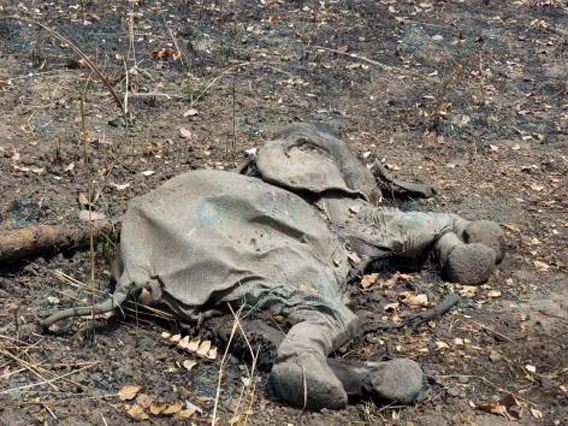
Elephant killed by poachers in Cameroon’s Bouba Ndjida National Park. Photo by: © IFAW/J. Landry.
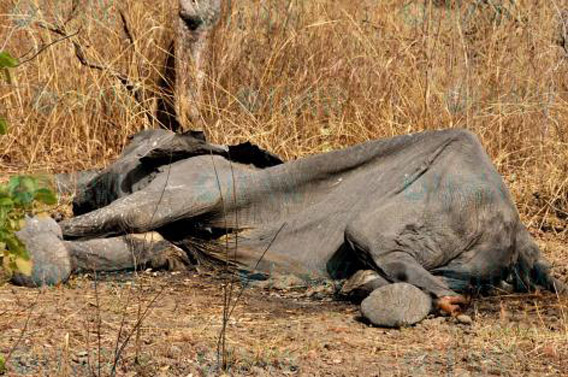
Elephant killed by poachers in Cameroon’s Bouba Ndjida National Park. Photo by: © IFAW/A. Ndoumbe.
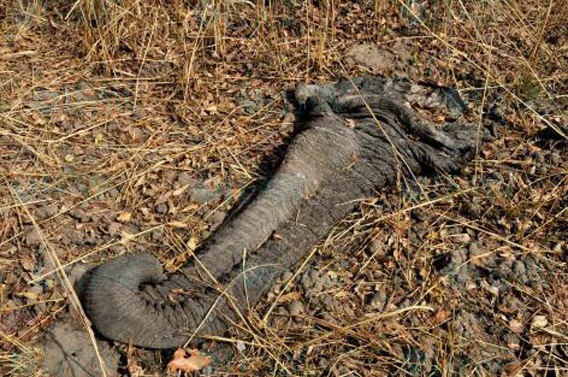
Trunk of slaughtered elephant. Photo by: © IFAW/A. Ndoumbe.
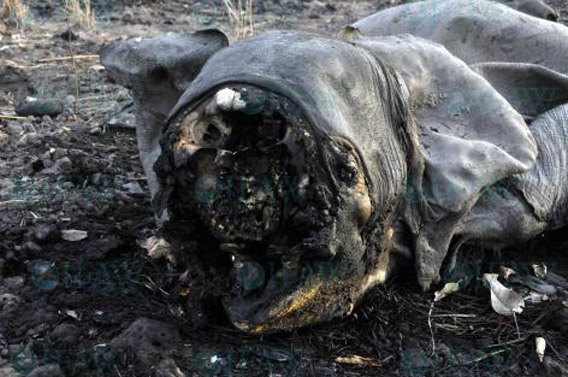
Elephants suffer a gruesome death. Photo by: © IFAW/A. Ndoumbe.
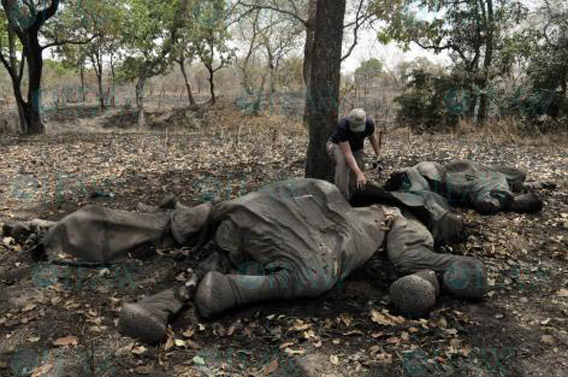
Mass killings. Photo by: © IFAW/J. Landry.
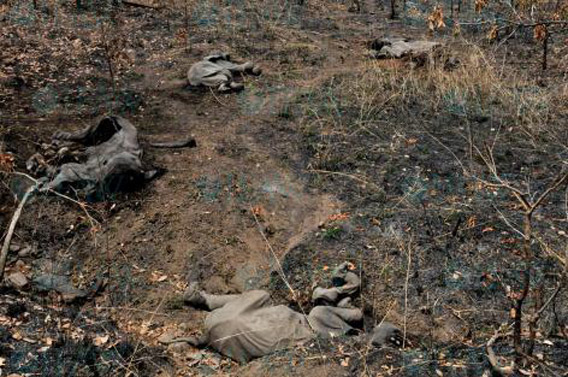
It is likely that hundreds of elephants have been killed for their ivory in the park over the past few weeks. Photo by: © IFAW/J. Landry.
Related articles
Military called in to stop Cameroon elephant slaughter – but may be too late
(03/05/2012) Cameroon’s military has been called in to Bouba Ndjida National Park to take on foreign poachers that have slaughtered hundreds of elephants for their ivory, according to the World Wide Fund for Nature (WWF). Reports vary, but between 200-480 elephants have been killed in recent weeks in the park by what is widely assumed to be poachers from Sudan.
Elephant death-toll rises to almost 500 in one park in Cameroon (warning: graphic photo)
(02/29/2012) Wildlife officials have found 458 dead elephants in Cameroon’s embattled Bouba Ndjida National Park, reports the AFP. However officials fear the actual number is even higher around 480. Over the last six weeks a well-organized group of poachers has run free in the park, slaughtering elephants for their ivory tusks which will make their way to markets in Asia.
Elephant massacre in Cameroon (warning: graphic photo)
(02/17/2012) More than 200 elephants have been slaughtered for their tusks in less than a month in Cameroon, reports the International Fund for Animal Welfare (IFAW). The group blames Sudanese poachers for cross-border raids from Chad into Bouba Ndjida National Park in northern Cameroon.
What a Bornean elephant wants: more protected forests and wildlife corridors
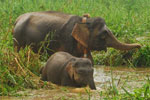
(02/16/2012) Forest fragmentation and destruction is imperiling the Bornean elephant (Elephas maximus borneensis), according to a new paper published in PLoS ONE. Using satellite collars to track the pachyderms for the first time in the Malaysian state of Sabah, scientists have found that the elephants are extremely sensitive to habitat fragmentation from palm oil plantations and logging.
Sumatran elephant population plunges; WWF calls for moratorium on deforestation
(01/24/2012) The Sumatran elephant subspecies (Elephas maximus sumatranus) was downgraded to critically endangered on IUCN’s Red List of Threatened Species on Tuesday, prompting environmental group WWF to call for an immediate moratorium on destruction of its rainforest habitat, which is being rapidly lost to oil palm estates, timber plantations for pulp and paper production, and agricultural use.
Elephant poachers kill unarmed wildlife ranger in Kenya
(01/16/2012) Abdullahi Mohammed, an wildlife ranger, was killed in the line of duty in Kenya this weekend by elephant poachers. A ranger with the conservation organization Wildlife Works, Mohammed was shot by poachers in Wildlife Works Kasigau Corridor project, a REDD program (Reduced Emissions From Deforestation and Degradation).



